As the holiday season brings heightened emotional experiences for students and staff, the School District of Lancaster (SDoL) is spotlighting the transformative impact of the RULER Approach to social-emotional learning (SEL). RULER, developed by Yale University’s Center for Emotional Intelligence, provides a structured framework to help individuals recognize, understand, label, express, and regulate emotions, cultivating an environment where academic and personal growth flourish.
Launched district-wide prior to the COVID-19 pandemic, RULER’s rollout was temporarily disrupted but reintroduced with a focus on equipping staff and students with tools to navigate emotional challenges. The curriculum is now embedded into daily classroom instruction across SDoL, with measurable improvements in both behavior and academics.
English RULER Overview | Spanish RULER Overview
Why RULER Matters: Building Emotional Intelligence
RULER is an acronym that stands for Recognize, Understand, Label, Express, and Regulate—a comprehensive approach to emotional intelligence. This evidence-based curriculum equips individuals with tools to understand their own emotions and the emotions of others, fostering empathy, communication, and self-regulation.
At the core of RULER is the belief that all emotions matter. Contrary to misconceptions, there are no “good” or “bad” emotions. Instead, every emotion—whether pleasant or unpleasant—serves a purpose. Recognizing and managing emotions helps students and staff create meaningful relationships, resolve conflicts, and approach challenges with confidence and empathy.
RULER employs four evidence-based tools to integrate emotional learning into the school day:
- The Mood Meter: Helps students identify their feelings based on levels of pleasantness and energy.
- The Charter: A collective agreement on how students and teachers want to feel and how they will treat one another. Similar to a promise to one another.
- The Meta-Moment: A reflective strategy that helps individuals pause, assess their emotions, and choose productive responses, especially during high energy and low pleasantness times.
- The Blueprint: A reflective guide to use during conversation when recognizing, understanding, labeling, expressing, and regulating your emotions as well as understanding others’ emotions.
Families are encouraged to create their own charters, post Mood Meters in their homes, and use the How We Feel app, which aligns directly with the RULER curriculum. These practices help parents and children build a shared language for discussing emotions and navigating challenges together.
Suggested notes
-
- Decide on common language about recognizing, understanding, and labeling feelings in your home and with your family
- Decide together on ways that you promise to treat each other, especially during high energy times
- Post a Mood Meter in your home for family members to reference to describe how you’re feeling. Identifying your feelings goes a long way in being able to discuss and regulate them.
- Reference the Meta-Moment for yourself and your family so that when you’re feeling high energy, you are better able to understand and regulate your feelings.
- Download and use the How We Feel App with your families. The App is designed by Yale and connects directly to the RULER curriculum that students use in school.
Beginning the Conversation about Feelings at Home:
-
- Simply asking your child or family member how they are feeling and actively listening can begin the conversation.
- When it’s hard to pinpoint an emotion, utilize the features of the mood meter to identify the level of pleasantness and energy levels.
- Ask your family and friends how they felt throughout the day. If there was a situation that was challenging or exciting, ask them how they felt during that moment and then how they felt about it after.
